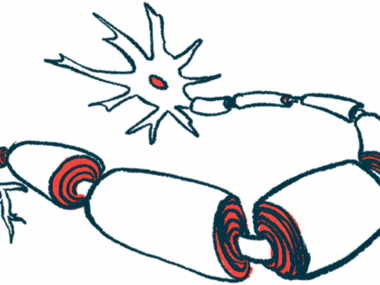Cigarette smoking slows recovery after an MS relapse, study finds
Higher EDSS scores seen up to two months later with tobacco use
Written by |

Cigarette smoking significantly slows recovery time from a relapse for people with relapsing-remitting multiple sclerosis (RRMS), according to a pilot study in Iran.
Similar links with relapse recovery were not seen for tobacco use with water pipes or exposure through second-hand smoke, also known as passive smoking.
Findings add to prior evidence linking cigarette smoking with significantly faster disability progression and poorer outcomes.
The study, “The effects of different types of smoking on recovery from attack in hospitalized Multiple Sclerosis patients,” was published in the journal Clinical Neurology and Neurosurgery.
Study into tobacco use via cigarettes, water pipes, or passive exposure
Mounting evidence supports an increased risk of disease progression in MS patients who smoke, as well as a likelihood of greater brain atrophy (shrinkage). But most studies evaluated cigarette smokers, and less evidence exists for tobacco use in other the forms, like water pipes, or for tobacco exposure through passive smoking.
How smoking affects patients’ recovery after an MS attack also is largely unknown.
A team of researchers at medical universities in Tehran retrospectively analyzed data covering 142 adults with RRMS followed from December 2020 to December 2021 at a local hospital.
These patients, 59.8% women, had a mean age of 36.5, and they were at least able to walk 200 meters without an aid. At the time of the analysis, all were admitted to the hospital due to a disease relapse, defined as the appearance of new symptoms or the worsening of previous ones for 24 or more hours that cannot be explained by other factors.
A majority of patients — 79 people or 55.6% — were smokers and 63 (44.4%) were nonsmokers. Smokers included 49 patients who smoked cigarettes, 19 who used water pipes, and 11 who were passive smokers.
No significant differences were seen between smokers and nonsmokers for potential confounding factors, such as age, sex, treatment type, and marital status. Methylprednisolone, a corticosteroid, was the most commonly prescribed therapy to help patients recover from a relapse.
Researchers compared disability scores, measured with the Expanded Disability Status Scale (EDSS), between these groups immediately after a relapse and two months later. EDSS scores range from 0 to 10, with higher scores indicating greater disability.
Overall, smokers had statistically significant higher EDSS scores than nonsmokers immediately after a relapse (mean score of 3.31 vs. 2.95) and at two months later (mean score 1.56 vs. 0.33). This means that people who smoked reached higher levels of disability during a relapse and had a poorer two-month recovery than nonsmokers.
Declines in EDSS scores, signaling improvement, from their relapse peak to two months later also were significantly more pronounced among nonsmokers than smokers — a mean reduction of 2.62 vs. 1.75 points.
Researchers then divided the smoking group in cigarette, water pipe, and passive smokers. EDSS scores among cigarette smokers were significantly higher than those of nonsmokers immediately and two months after a relapse. However, no statistically significant differences were seen with water pipe smokers or passive smokers compared with nonsmokers.
Smoking with multiple sclerosis tied to greater relapse, recovery phase disability
A positive correlation also was evident between post-relapse EDSS scores and the number of cigarettes smoked each day, meaning that heavier smokers experienced more disability during a relapse. However, this association was no longer significant when accounting for age, sex, and disease duration, meaning it could be due to chance.
A significant association also was detected between EDSS scores at two months post-relapse and the number of minutes given to water pipe smoking each month and minutes each year of passive exposure to tobacco smoke. These two remained significant after accounting for the confounding factors.
Study results “show that tobacco smoking especially cigarette smoking is associated with higher functional disabilities during a relapse and recovery phase of attack in patients with RRMS,” the scientists concluded.
While studies in larger and more diverse patient groups are needed, “it seems that abstinence from smoking to improve the functional recovery after MS attacks may be helpful for this population,” they added.



